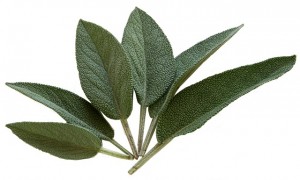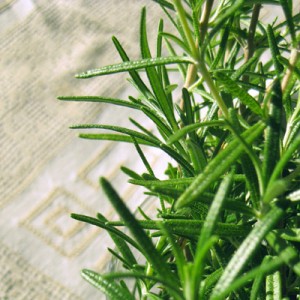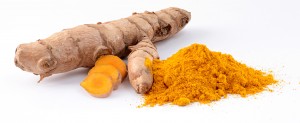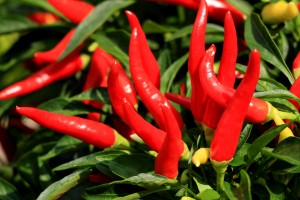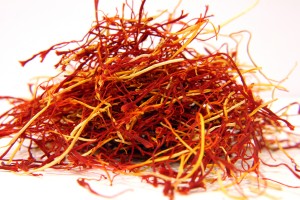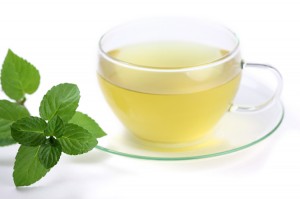All too often we hear the complaint that healthy food is boring. It’s true. Healthy food, on its own, can be quite bland and flavorless. But I have a trick for you that will get your food tasting delicious without added fat and calories (for the most part). Welcome to the world of spices and herbs.
Surprisingly enough, many spices and herbs are packed with nutritional benefits. Historically, many were celebrated for their medicinal benefits even before they were put to culinary use. Not only are they great for your health but they pack the punch that your food might just need.
Here are 8 of the healthiest herbs and spices that will bring your food from dull to delicious.
1. Cinnamon
A fall favorite, cinnamon has a warm and spicy flavor that works well with cloves, nutmeg, all spice, nuts and fruits. Studies have shown that cinnamon may help people with type 2 diabetes to control their blood sugar level. Adding up to 1 tsp of cinnamon to food can lower spikes in blood sugar after that meal.
2. Sage
Sage tea can be great to sip on if you have a sore throat or upset stomach. Current research also suggests that it may help to improve brain function and memory, particularly the symptoms of Alzheimer’s disease. In one study, college students were given sage extracts in a capsule for before performing a memory test. These students performed significantly better than those who did not take the capsule and they also experienced improved mood.
3. Rosemary
Rosemary is most often used in marinades and in cooking meets to add flavor. It pairs very well with lamb, potatoes and citrus flavors. It has anti-inflammatory effects that can help to relieve allergies and nasal congestion symptoms. Rosemary oil also has some stress-relieving benefits and is often used in aromatherapy.
4. Turmeric
With its beautiful yellow color, turmeric has a peppery and warm flavor and pairs well with curry and ginger dishes. Curcumin, a compound found in turmeric, has potent antioxidant and anti-inflammatory properties. Its anti-inflammatory trait is so strong that it actually matches some anti-inflammatory drugs. It can help to relieve pain from arthritis and injuries, and may play a potential role in managing heart disease, diabetes and Alzheimer’s disease.
5. Cayenne Pepper
Cayenne pepper is a type of chili pepper used to spice up dishes. But be careful…you only need a little bit! This spice is very popular for reducing appetite and inducing fat burning. It is commonly used in tea as a weight loss method. Although it is true that cayenne pepper revs up the metabolism, it is not significant for long-term weight loss. Studies have shown that those who are accustomed to spicy foods often don’t experience this effect, indicating that a tolerance can be built up. There are links to possible anti-cancer benefits in animals but this has not been proven in humans.
6. Ginger
Ginger pairs well with curry dishes, citrus, soy sauce and spice. 1 gram or more of ginger can help to treat nausea and upset stomach, including nausea caused by chemotherapy. It also has strong anti-inflammatory effects and may help with reducing arthritis pain and some cancers. One study found that ginger extract injections helped to relieve osteoarthritis pain of the knee.
7. Saffron
One of the most expensive herbs in the world, saffron is actually the dried stigmas of flowers. Its deep auburn color is often used to add color to dishes. It has a sweet flavor and pairs well with rice and shellfish. Saffron can be used to uplift mood and can even help treat mild to moderate depression. It can also help to regulate periods for women who experience irregularity and a saffron herbal supplement can help with menstrual pain and cramps.
8. Mint
Mint leaves are wonderful, particularly during the warmer weather, as a refreshing burst of flavor that can be added in beverages or summer salads. It can also help brighten up a dense dessert. Aside from providing a wide range of traditional nutrients, it can not only relieve stress with its scent but can also help with easier breathing in people with asthma and allergenic rhinitis. Peppermint is also a stomach soother and can help alleviate the symptoms of irritable bowel syndrome.
Tips on how to use spices and herbs
I will leave you with a few quick tips on how to incorporate herbs and spices into your healthy dishes.
- Avoid overwhelming a dish with too many seasonings, rather use seasonings to bring out the foods natural flavor
- Never use two very strong spices/herbs together. Always mix a strong with a mild
- Use dry herbs early in the cooking process and use fresh herbs at the end
- Don’t randomly use seasonings; do a little research and find what works well together
- Don’t overuse salt; use healthy spices and herbs to flavor your dishes



